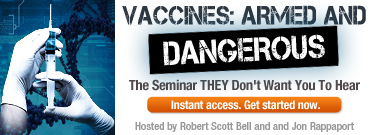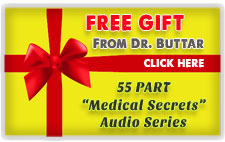 This week is the first week of 'Breast Cancer Awareness' month. Following is the 'Hers' column after the ‘His’ column last week for 'Prostate Cancer Awareness' month’s last week.
This week is the first week of 'Breast Cancer Awareness' month. Following is the 'Hers' column after the ‘His’ column last week for 'Prostate Cancer Awareness' month’s last week.
Hold The Mayo!
Some time ago the renowned Mayo Clinic announced that it was leading a nationwide breast cancer study. The stated aim was to find some kind of marker that indicated who was more likely to develop breast cancer.
Two weeks later another report noted that the essential mineral element selenium may guard against breast cancer in the journal Cancer Research. One hope that University of Illinois at Chicago researchers doing this study had was to determine an amount of selenium for doctors to prescribe to protect against cancer.
Another two weeks after that another array of prominent cancer researchers noted their concern to find some kind of marker that gives advance warning of the likelihood of metastasis (the spread of cancer). Metastasis is said to be the cause of death in 90 percent of cancer deaths.
Selenium to the rescue … AGAIN!
Selenium was first noted as a possible anti-cancer substance in 1910. Positive benefit from selenium as part of breast cancer treatment was reported in the British Journal of Medicine in 1935.
Drs. Clayton and Bauman noted that selenium reduced cancer incidence by more than 30 per cent in 1949. That report was made in the journal Cancer Research when it was less than 10 years old more than 50 years ago. That is the same journal referenced above that noted a possible selenium protection against breast cancer in recent years.
Less than 20 years later breast cancer was linked to low levels of selenium. This was noted by numerous researchers separate and apart from one another in a variety of science journals.
Similar reports have surfaced every few years since then about selenium and breast cancer.
Is anyone paying attention?
The Mayo Clinic effort noted in the opening of this column was to seek biological indicators of those more likely to develop breast cancer. They were going to compare tissue specimens of women from 1967 and all the way through the 1970s. Similar studies were conducted during those very same years. It was noted then that American women had substantially less selenium in their tissues than other cultures where breast cancer was much lower.
University of Illinois at Chicago researchers wanting to determine levels of selenium that might be necessary to protect against cancer would find that such levels were already discovered and published in the 1960s and 1970s as well – if they’d bother to look.
Many other current researchers want to find a marker that indicates likelihood of the metastasis that is recognized as the primary cause of cancer deaths. Selenium again was noted as that factor in the late 1970s.
Dr. Gerhard Schrauzer was professor of Medical Chemistry at the University of California at San Diego for decades. He and his colleagues found at that time that breast cancer deaths were directly proportionate to dietary intake of selenium. The lower the selenium intake the higher the rate of death from breast cancer. The higher the selenium intake the lower the rate of death from breast cancer. This was consistent throughout 27 countries (including the United States).
Dr. Schrauzer noted more than 20 years ago that if every woman in America supplemented with 200 micrograms of selenium daily then breast cancer would be significantly diminished.Cadmium again…
The heavy metal cadmium was linked to breast cancer by researchers at Georgetown University according to a report in the journal Nature Medicine shortly after the announcement of the Mayo Clinic study previously noted.
One researcher noted that the strength of the relationship for cadmium to breast cancer even at very low levels was remarkable and a surprise.
It is remarkable that this surprises researchers. Selenium combines with cadmium to remove it from the body. The more cadmium you have in your body the more selenium will be used to dispel it from your body. Reduced selenium levels have been noted for decades to render one more susceptible to breast cancer.
Cadmium is a common air contaminant due to burning of fossil fuels. It is also abundant in shellfish, liver and kidney. Cigarette smoking is a significant source of cadmium as well. Consumption of refined flours and sugars also contribute to increased cadmium levels.
Déjà vu with Dr. Peter Greenwald
Dr. Peter Greenwald, M.D, is on the board of directors of the Breast Cancer Research Foundation.
Yes, the same Dr. Greenwald noted last week to dismiss phenomenal anti-cancer results with selenium more than a decade ago with the remark, “We do not recommend supplements.”
The same Dr. Greenwald who has been Director of the National Cancer Institute’s (NCI) Division of Cancer Prevention and Control for almost 30 years.
The same Dr. Greenwald who excitedly recommended a drug with much less results than selenium against cancer after just one, small and short study after dismissing a selenium study as only one study though much larger and much longer.
The same Dr. Greenwald who in the year after dismissing selenium for cancer received numerous awards from a variety of cancer groups including the American Charlatancer Society.
One of the NCI duties of Dr. Greenwald is to be in charge of nutrition research. With friends like that who needs enemies?
Certainly Dr. Greenwald is not a best friend of nutrition and likewise that he is no "breast" friend is a certainty.
Tough questions
Why don't researchers put this puzzle together? Are they inept? Are they crooked? What other choices are there? Isn't it way past time to promote selenium supplementation as the most prominent prevention for breast cancer?
Our health care is in the soup largely because the alphabet soup groups make up an AlphaBureauCratic toxic soup. Their research concentrates efforts upon drugs and medical treatments rather than upon healthy habits such as food and nutrients from food.
“An ounce of prevention is worth a pound of cure” the old saying goes. A daily selenium supplement of only 200 micrograms as recommended by Dr. Schrauzer more than 30 years ago would take 40 years to reach just an ounce of prevention. It is not much. It is probably not even enough. It would be a good start and a refreshing change for most women and men alike.
Cancer is not a drug deficiency. It is primarily a dietary disorder due to both subtraction of nutrition and addition of toxic contents.
This nation does not have a health care program. It has a sick care program.
Almost all the money in the health "care" system goes into this sick care program. Much of it is given willingly by the sheeple in marathons, walk-a-thons and other fund raising schemes and scams from false shepherds leading them down a primrose path.
When will someone organize a fundraiser for nutrition programs? Would anyone contribute?
How about working together for real health CARE for a change?
Christopher C. Barr writes Naturally Speaking from Arkansas: The Natural State … naturally! You may write him at Post Office Box 1147, Pocahontas, Arkansas 72455 or by e-mail at servantofYHVH@hotmail.com.





















 Stumble It!
Stumble It!